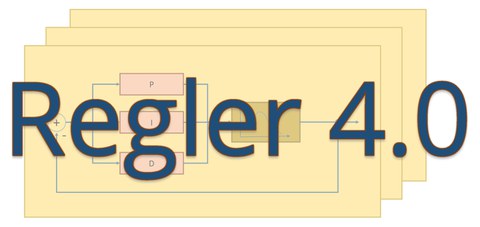Regler 4.0: An industry-4.0-compatible multichannel system for control problems in test laboratories

Fördergeber
Project Regler 4.0
The project aims for the development of an intelligent, network-compatible control system which serves as a basis for the digital twin of test laboratories.
By using an open protocol for the communication between the digital controller and other devices of the laboratories infrastructure, relevant information for monitoring, maintenance and quality management are accessible. A modular concept of the digital controller allows for an application-based mapping of required amplifiers, analogue and digital inputs and outputs as well as electrohydraulic servo valves and their controllers. The digitalization of the testing environment eases the setup and increases the systems reliability. Moreover, long analogue measuring lines are avoided.
By acting as an IoT device, the controller not only facilitates the communication of operator and test rig but also of local SMEs and their international customers. Focussing on the reproduction of non-controllable sensor signals, the design of new methods for an intelligent control system is also in the scope of the project. As a result, a distributed smart digital controller - the controller 4.0 - is developed.
Objectives
The aim of the project is the development of a novel digital control system. Using decentralized amplifiers and a modern bus system, analogue measuring lines are avoided wherever possible to facilitate tests of even large structures. Using a modular concept, the digital controller can be efficiently adapted to the individual requirements of different testing scenarios. The development of an open communication protocol enables a connected infrastructure and, thus, allows to provide technical as well as economical data in a digital laboratory.
Benefits
The project promotes the digitalization of experimental tasks and, with that, reduces errors resulting from an application of analogue measuring lines. The application of distributed amplifiers allows for a flexible testing of even larger structures. Additionally, the availability of technical data increases the operational efficiency. By connecting the laboratories infrastructure, measured data can be automatically captured and managed to provide a database for modern evaluation methods based on machine learning algorithms. Finally, test service providers and their customers are offered an opportunity to exchange up-to-date information via an open communication protocol. This makes the digital test laboratory necessary to perform research in the field of data-driven modeling approaches.
Project Management
 © TU Dresden
© TU Dresden
Dr.-Ing. Peter Hantschke
Send encrypted email via the SecureMail portal (for TUD external users only).
Chair of Computational and Experimental Solid Mechanics
Visiting address:
MAR30, Zimmer 056 Marschnerstraße 30
01307 Dresden
Project Employee
 © TUD/NEFM
© TUD/NEFM
Dipl.-Ing. Philipp Metsch
Send encrypted email via the SecureMail portal (for TUD external users only).
Chair of Computational and Experimental Solid Mechanics
Visiting address:
MAR, Zimmer 053 Marschnerstraße 30
01307 Dresden

